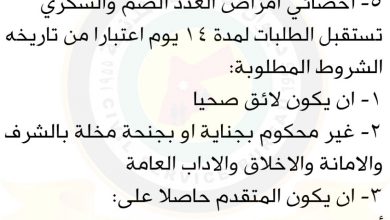Expert to Develop Participatory Methodologies for OGP

Expert to Develop Participatory Methodologies Related to Open Government Partnership (OGP)
Background:
The Leading government institution was established in November 2019 to coordinate, support, and drive the implementation of reforms under the Reform Matrix. Additionally, the Leading government institution provides necessary technical assistance and capacity building to government ministries and entities to support and expedite the implementation of reforms.
The Leading government institution oversees the implementation of the Reform Matrix; ensures reforms are designed in consultation with stakeholders; reports to the Government of Jordan (GoJ) and development partners on progress; and coordinates between GoJ entities and development partners to ensure implementation and alignment of donor programs with national priorities. Furthermore, the Leading government institution is mandated to support the development and implementation of effective stakeholder engagement and outreach, hence, together with government entities, the Leading government institution will continue to produce and disseminate information and communication materials to inform all target groups, including the private sector and the public, of the progress of implementation and impact of reforms.
The Reform Matrix consists of twelve pillars:
Pillar 1: Fiscal Policy
Pillar 2: Public Sector Efficiency and Governance
Pillar 3: Business Enabling Environment
Pillar 4: Investment and Trade Promotion
Pillar 5: Access to Finance and Capital Market
Pillar 6: Labor Markets and Skills Development
Pillar 7: Social Safety Nets
Pillar 8: Transportation Sector
Pillar 9: Energy Sector
Pillar 10: Water Sector
Pillar 11: Agriculture Sector
Pillar 12: Tourism Sector.
The Reform Support Fund is lodged at Leading government institution and managed by the Leading government institution. It will finance just-in-time technical assistance in support to line ministries involved in designing, implementing, and monitoring the Reform Matrix.
Project Context
Stakeholder engagement is an on-going process throughout the Reform Process. The Leading government institution is considering supporting the Public Investment Management Unit (PIM) at Leading government institution to implement the Sixth Commitment of the fifth National Action Plan (2021 – 2025) for Open Government Agenda, namely the ‘Engaging local communities/stakeholders throughout the different stages of governmental capital/investment projects. This engagement will support the alignment and responsiveness of these projects to community needs and to improve the level of public services.
The Open Government Partnership (OGP) is a voluntary multilateral initiative that aims to secure concrete commitments from governments to promote transparency, empower citizens, fight corruption, and harness new technologies to strengthen governance in the spirit of multi-stakeholder collaboration.
Main Function:
Acknowledging the importance of aligning PIM projects to community needs, while adhering to environment and climate protection principles, the Expert Consultant will be seconded by the Leading government institution to support the PIM Unit at Leading government institution to develop Public Engagement Methodologies (PEM) to enhance the participation of local communities and stakeholders during the planning, implementation, and operation phases of Public Investment Projects (PIP). This would assist PIM unit in implementing the activities of the Commitment effectively within the values and principles of the OGP Initiative; (Public Accountability, Access to Information, Public Participation, Technology and Innovation for Openness and Accountability). Furthermore, the Expert Consultant shall develop a Monitoring and Evaluation Methodology (MEM) that includes a compliance matrix to ensure that the relevant governmental bodies apply the procedures and action plans of the PEM at all phases of PIP.
Responsibilities:
An individual Expert Consultant will be responsible for the following key tasks:
- Preparing inception report which includes the Expert Consultant’s methodology and work plan to perform his tasks.
- Conducting a survey of relevant governmental and non-governmental bodies in development of PIP (Such as Ministries, Trade Unions, Chambers of Commerce, Senior Contractors), as well as those in the field of enhancing public participation in policies, programs and public projects (including sector-based and community-based private sectors and Civil Society Organizations working in this field, as well as academia, environment protection entities and NGOs supporting gender equality and vulnerable groups). The survey aims to identify the relevant stakeholders (governmental, non-governmental, CSO and private sector) and their roles in developing PIPs.
- Holding (3) meetings and focus group discussions (FGD) with the relevant entities identified in the survey, and with those entities who are interested in implementing the Commitment, to discuss the expectations from the methodology, its components, objectives, principles, and to obtain feedback that will contribute to the development of the initial draft PEM. The three meetings will be organized as follows:
– one meeting/FGD with the relevant governmental entities
– two meetings/FGD with relevant non-governmental entities and Civil Society Organizations
- Developing the draft PEM and draft Monitoring and Evaluation Methodology (MEM) based on the legislative framework governing the implementation of the Commitment and the relevant international best practices. The PEM and MEM should include the procedures, forms, models, and the action plan necessary for the implementation of the methodologies during planning, implementation, and operation phases of the PIP.
- Participating in a validation workshop with the technical team from the relevant governmental bodies in order to align the draft PEM and draft MEM with the resources, capabilities and expectations of the governmental bodies that will work on the implementation, and to analyze the challenges and procedures that must be addressed to ensure an effective implementation of the methodologies, and to continue working with the technical team until finalizing an agreed upon PEM and MEM.
- Participating in a validation workshop with non-governmental bodies, Civil Society Organizations, academia, experts and specialists to review their opinion on the agreed upon PEM and MEM, and to obtain their feedback that will contribute to the development and the issuance of the final versions of PEM and MEM.
- Conducting a 3-day training workshop for PIM and public sector employees from the relevant bodies (15-20 persons) on the implementation of PEM and MEM during the PIP phases. The Expert Consultant will perform the training and provide the required materials, while other requirements (venue, logistics …etc.) will be provided by Leading government institution.
Deliverables:
The following deliverables fall under the responsibility of the Expert Consultant:
- Developing a PEM to be adopted by PIM to assess the impact of the PIP on the local community during: (1) the planning phase; in order to ensure the PIP’s alignment to the needs of local community and address any potential negative impact of these projects (Pre-Social Audit), (2) the implementation phase; to enhance participation of local community in the evaluation of PIP and identify the potential environmental and social impacts on beneficiaries, and (3) the operation phase; to enhance the participation of local communities /stakeholders in the evaluation of PIP. This aims to identify gaps and lessons learned through the ministries and relevant governmental institutions to be considered in future PIP. The PEM must be Inclusive and specifies the engagement of diverse community stakeholders, including vulnerable groups such as the elderly, women, youth, refugees, and people with disabilities.
- Developing a Monitoring and Evaluation Methodology (MEM) that includes a compliance matrix to ensure that the relevant governmental bodies apply the procedures and action plans of the PEM at all phases of PIP, while attempting to collect disaggregated data during the different FGD and meetings.
|
# |
Deliverable |
EXPECTED DATE |
Payment |
|
1 |
Signing the Contract with the Expert Consultant |
T0 |
– |
|
2 |
Inception Report |
T1=T0+1 week |
10% |
|
3 |
Draft versions of PEM and MEM (in Arabic and English languages) |
T2=T1+7 weeks |
40% |
|
4 |
Final versions of PEM and MEM (in Arabic and English languages) |
T3=T2+2 weeks |
30% |
|
5 |
Training workshop for PIM and public sector employees from the relevant bodies |
T4=T3+2 weeks |
20% |
Qualifications:
- Practical and demonstrated experience no less than 10 years in the development of Public Engagement Methodologies and Monitoring and Evaluation Methodologies.
- Proven communication and leadership skills.
- Experience in public investment management is a plus.
- Knowledge of the OGP values and principles.
- At least 5 years practical experience in training and capacity building.
- Advanced university degree in social sciences or a relevant field.
- Experience in working with NGOs and CSOs.
- Knowledge of international standards such as the ESF (ESS10 on stakeholder engagement) would be an asset.
- Knowledge of the World Bank and OECD Environment and Social Framework and Environmental and Social Standards.
- Fluency in English and Arabic.
للتقديم على الوظيفة من خلال الموقع الأصلي




